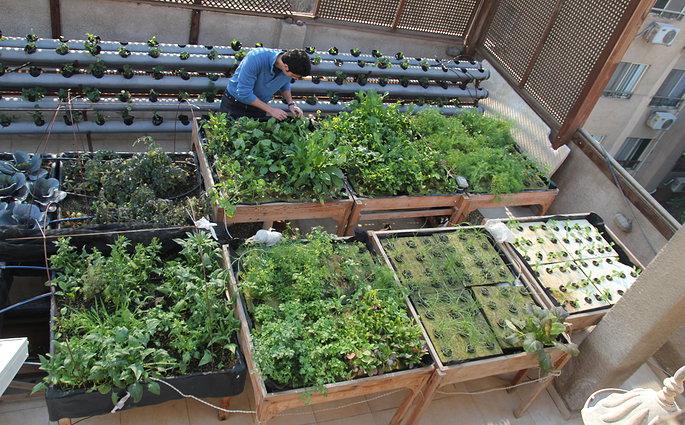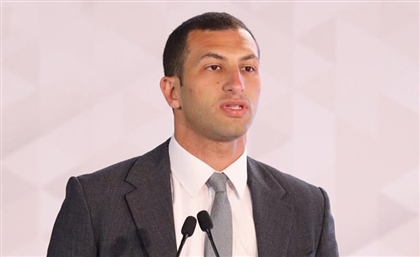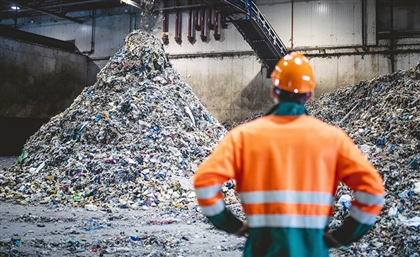Schaduf - An Agricultural Revolution in Cairo
Combating our polluted air, modified crops and drab scenery with rooftop microfarms, home gardens and living green walls, brothers Sherif and Tarek Hosny are on a mission to change the way we live, eat and make money...

The term 'concrete jungle' is never more aptly used than for Cairo. This city is a fast-paced, sepia toned, multi-layered cluster, born from a crippled idea of Westernised urban living. The air is thick with pollutants, the food pumped with preservatives and the consequences of both are disregarded by a population looking for the quickest and easiest ways to get anything done. Schaduf, a name which refers to an ancient Egyptian irrigation tool, has big plans to change all this, starting small by creating green spaces around the city – implementing urban microfarms, supporting low income communities to grow and sell rooftop crops, setting up home gardens for those who want to harvest their own healthy food and they’re also the first company in Egypt to turn walls, ceilings and interiors into decorative plant-life fixtures that help to purify our air. Founded by two brothers Sherif and Tarek Hosny, Schaduf is that little weed growing through the cracks of the concrete that might one day turn into a sustainable forest, and make Cairo green. We talk to Sherif to find out more about how they started, Egypt's farming industry and growing molekheya on your rooftop...
When and how did the idea of Schaduf come about?
My brother Tarek and I got the idea in December 2010 while volunteering on an organic farm. We came to the farm with no farming experience and had never worked a day on an actual farm. At first we thought it would just be an interesting experience but soon we realised that it would change our lives.
How passionate were you about botany before starting Schaduf?
We've always had an interest in plants and nature in general. Our grandfather was an agronomist so he might have had an impact on us. However, once we decided to start Schaduf we had to learn a lot about agriculture and to add several experienced agronomists to our team. I probably studied more than a PhD student for six straight months and continue to learn new things every day.
What do you think are the biggest problems affecting the food and farming industry in Egypt?
Food safety and supply chain. Farmers don't have the necessary means or knowledge to produce high quality produce. The bigger portion of the market is non-organic and it's sold at very low prices which doesn't give farmers an incentive to produce higher quality goods. On the other hand, we lose unbelievable amounts of food because of poor transportation and storage methods.
What does one need in order to begin a micro farm with Schaduf, and what does it take to maintain it?
To own one of our farms you need a roof with lots of sunshine of course. You also need water and electricity outlets, and last but not least, you need to finance it. Usually for rooftop farms, there is a minimum of 10 sqm which roughly starts from 750 EGP/sqm .
How did you go about deciding where and whom to approach first with your low income community projects?
To start approaching low income communities we needed an entry point. We wanted to just be in one or two neighborhoods in Cairo to be able to manage the farms. At the time we decided to partner with local community NGOs who already know the community and could also help us with financing in some cases. 
How well were your ideas received and do you have any success stories from communities continuing with processes learned?
Like any new idea, we were faced with some resistance. People didn't really trust that the system would work. I guess seeing is believing. However, this entire journey has been a continuous learning process. We've changed our designs and materials several times until we reached a solution we finally felt comfortable with. We have customers in low income neighbourhoods who have been with us from the start and are happily producing vegetables.
Where do you source your plants and seeds?
Local varieties are usually better adapted to the Egyptian climate. We get most of our plants and seeds locally.

What kind of foods do you offer to grow?
Mostly leafy greens like spinach, arugula (rocket), dill, parsley, lettuce, and even molokheya. Also cherry tomatoes, bell peppers, cucumbers, and strawberries. We use hydroponic methods in growing our greens which meaning growing plants without soil. It's a great water saving technology but it also limits us from growing trees and a lot of fruits.
What other big projects have you worked on so far?
We have several 'Green Wall' projects, where we transform a dull concrete wall to an exotic living "island" with lush greenery and an array of colourful flowers. They are not only a scenery pleasant to the eye and soul, but they are also like huge natural air filters. Projects include green walls in CIB, Vodafone, Tapas Restaurant and others under construction. Now we aspire to create green spaces all over Egypt and the Middle East. 
What kind of benefits do you feel adding greenery adds to an office or home situation?
At home, certain plants are proven to significantly detoxify the air from harmful chemicals from paints, certain plastics or smoking particles. It's really about turning a dull space into a zen garden to sit in, relax and enjoy the view.
Some studies have shown that greenery at the workplace decreases absenteeism and increases motivation. I'm not promoting smoking but the coffee break area becomes a much more interesting place...
For inquiries or to find out at more check Schaduf out on Facebook here or visit www.schaduf.com
- Previous Article Pink Floyd Album Art Made by Egyptian Teen
- Next Article #NotInMyName: Muslims Slam ISIS
























